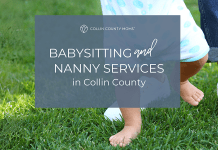Well, geez, Whitney, complain a little bit more, why don’t you? At least you have a job, functioning WiFi, a company-issued laptop, a spot in your home to carve out a work space, etc.
Yes, yes I do, and I am eternally grateful for all of these privileges as we continue to weather the pandemic. What I want to discuss here are the “workplace” problems I’ve seen since 24/7 telecommuting became the norm for so many of us.
Lack of Accountability
Questions that beg to be asked: Would we act like this during an in-person meeting? I love #wfhlife, but if we are busy grocery shopping, can we really give clear direction to our team at the same time? It’s SO EASY to multitask on calls, but if we were in person, would we be doing all of the following: chatting with a friend, obviously working on other projects, taking a nap, sitting in another meeting at the same time, fighting with our partner, etc.? This lack of attention affects projects exponentially, and I can’t be the only one SO tired of having to repeat things to others who clearly weren’t paying attention.
Longer Learning Curves
It’s hard enough to have to learn a new job, get trained on new programs, assess the team’s personality and culture…but doing all of this virtually? I ache for those who have to start a new job via a phone call. Learning curves slow down to a crawl when training is done call by call, shared screen by shared screen, which wreaks havoc on productivity.
Poor Company Culture
If you survived the pandemic layoffs, is your company’s culture just a fading memory at this point? We all had to stay home, understandably, and for that, it feels like our culture and morale have suffered.
This is the question that keeps me up at night:
What will keep an employee engaged these days?
It used to be the people, the culture, the team mindset could keep someone fulfilled at their job, even if the pay wasn’t 100% ideal or the work wasn’t always fulfilling. But these days, what is keeping a valued employee at a company? It can’t be the culture, because that’s almost nonexistent in pandemic-work life. We try with the Zoom happy hours and the fun virtual games. But at this point, the only Zoom happy hours I’m attending are the goodbye happy hours for colleagues who are moving on.
Communication Woes
“Can you mute?”
“I was talking on mute.”
“You’re still muted.”
“You go first. No, you go.”
“I’m sorry for cutting you off.”
“I missed that; what did you say?”
“Is that what you heard? My understanding was different.”
I’m so tired of virtual-only communication. I had no idea how important nonverbal cues were until we went 100% virtual. I’m positive my relationships with new coworkers would be completely different if we hadn’t met online only.
Have a delicate topic to discuss? Spotty WiFi, inadvertently speaking over others, trying to get your point across without ruffling feathers, is all a whole new avenue of communication that we (I) have not yet mastered.
 Future State of Business
Future State of Business
Studies show that promotions are hard to come by for virtual set ups. Why would that be? Do we not feel like we really know a person if we’ve never actually seen them in person? We are relational beings; we communicate (verbally and non-verbally), and build trust as we get to know each other. Take away that in-person dynamic, and everything slows down. Should we promote the go-getter who just started 15 months ago but whom we’ve never met? Should we do a big reorg and fill roles differently, or is it easier to keep things as is and hope for the best?
Clearly, there ARE many pros when it comes to the flexibility that working from home provides. As a full-time remote worker of three elementary-aged kids, I get this and I welcome it. But as an associate creative director at a major retailer, I feel and resist the tension of not having that in-person je nais se quoi…the silent look shot across the room to your counterpart during an acrimonious meeting, the drop by at a desk on the way back from lunch that earns points, the quick conversation at the vending machine that could settle a question (that will now take six emails, three Microsoft Teams chats, and a huge text chain to settle).
I hate tagging people into a chat or into a proof, where they have no context and have to quickly figure out a situation. I hate how many interruptions happen on a call. I hate that email is a wasteland; does anyone even respond to it anymore? It’s easier to get ahold of people via text or instant message these days, which doesn’t help when we have a complex issue to detangle.
DON’T LET WFH GET IN THE WAY OF YOUR NEXT PROMOTION
But here I am, a 41-year-old who is facing a lot of change, and I’m sure I need to get with the program. Things aren’t going back to how they used to be (and honestly, that is a good thing, as I previously had a hard time balancing work with home life), but what is the next normal? A hybrid mix of working remotely and meetings at certain moments for specific events? Totally going back to the office full time? 100% remote work?
What I hate most is the unknown (obviously). The biggest issue is that we don’t know what’s next, and companies are just hanging on (not complaining about that; this is all unprecedented). That’s why I loathe this unending work-from-home model: We just don’t know how long this will last, and it’s been hard to adjust.
Bottom line: This year, I was ready to push through the pandemic; I was not prepared to live with the pandemic.
What do you like about working from home? What do you dislike? How is your company handling work-from-home issues and keeping employees engaged?














30 year advertising person here. This will be a conversation for a long time but from my perspective, WFH is the greatest thing that has ever happened to me professionally.
Allowing distraction to impede the effort is all a question of self-discipline. When I sit down to work, I sit down to work and it is not reasonable for me to expect an office environment to keep me in line. I am blessed to be a multi-tasker, and can absolutely work on a spreadsheet while in a meeting.
I’m a grownup with responsibilities and when I commit to an employer that I will perform job X, I will do it, because I keep my word. I don’t whine. I don’t gossip. I don’t play victim. In terms of accountability, I am accountable to my own integrity and my own honor. My employer benefits from my high standard for myself, instead of an employer-mandated minimum. I may have a stew on the stove or go outside to water flowers, but I’m never more than 30 seconds from my home office. It is MY responsibility to do what I said I would do. This means I am available immediately for phone calls, emails and meetings and can respond to clients faster than any agency they’ve ever worked with.
I know I am a hyper-focused person. I know I get more done in 10 hours than most people get done in 40. In a corporate environment, that meant I was punished with more and more and more work because I could be counted upon to get it done. In the office, volume and work quality does not equal promotions, as we all know the relationship cultivators are the ones to move up, but with WFH none of that matters. It’s only about the work. With WFH, the work speaks for itself. I now have a great full-time job, plus two consulting contracts and often still work 30 hours/week. I make more money than I’ve ever made and work fewer hours, because for the first time in my life, the volume and quality of my work is valued instead of taken advantage of.